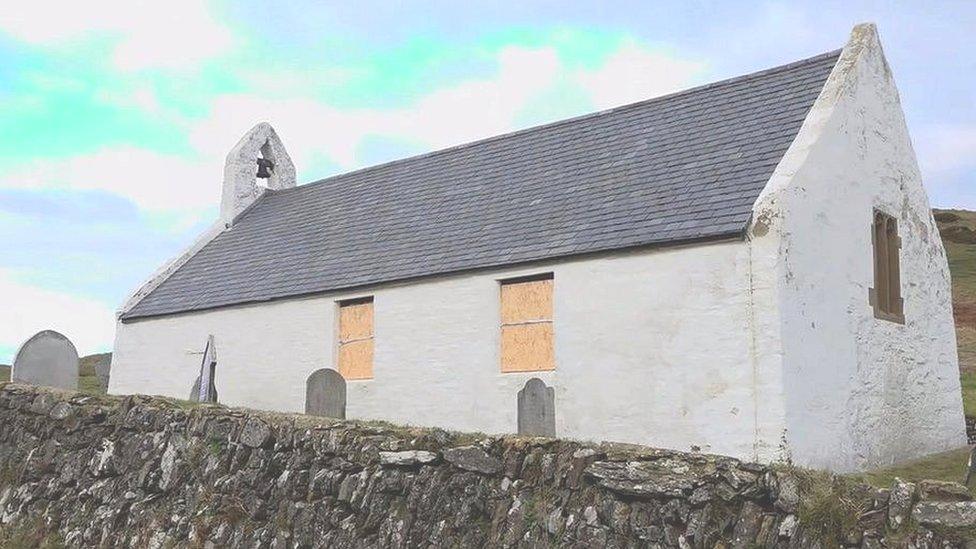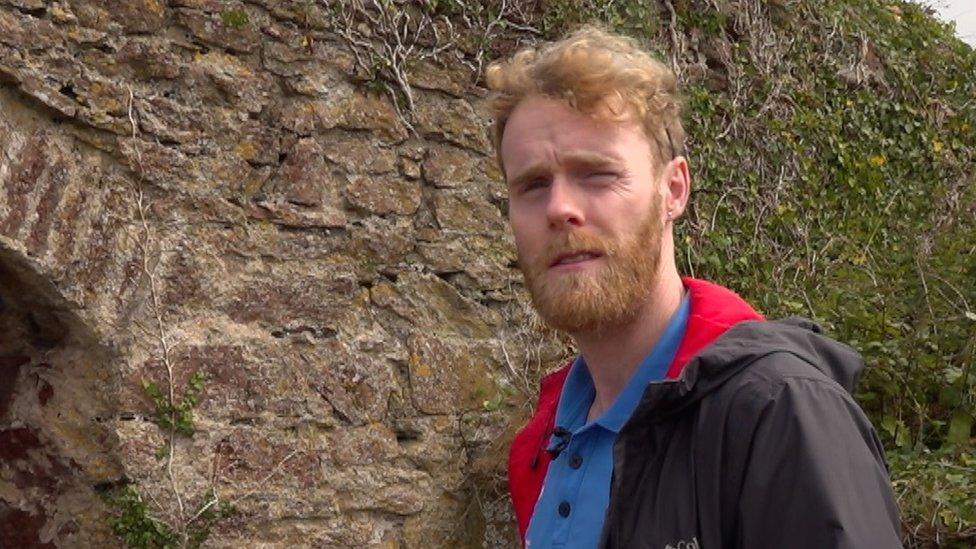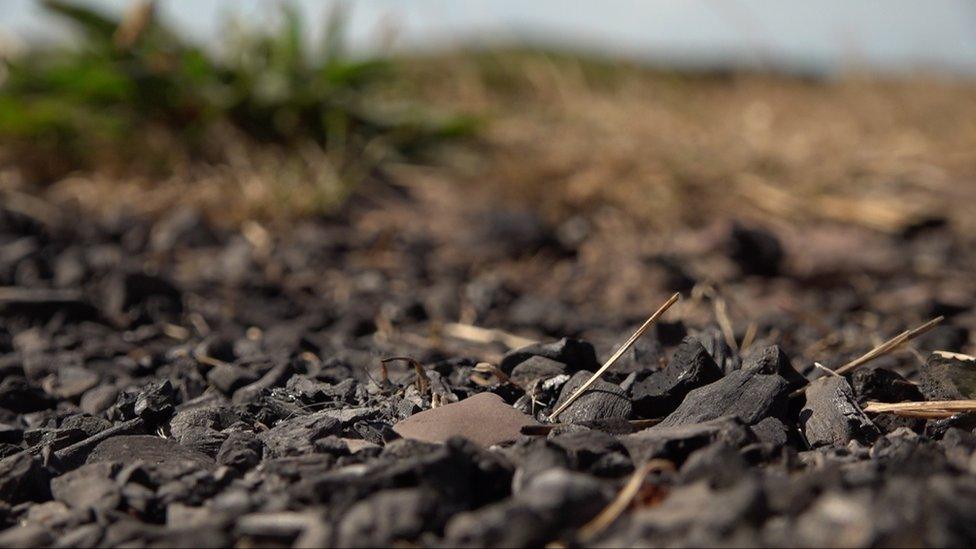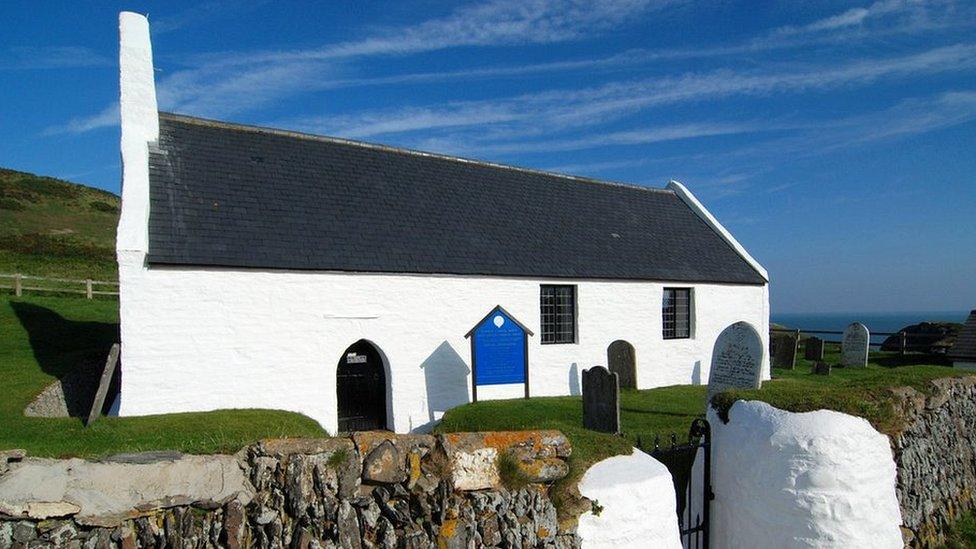Police bid to cut crime at heritage sites in Wales
- Published

Windows at a church in Ceredigion had to be boarded up after vandals smashed them
Wales' four police forces have linked up with heritage bodies to tackle crime affecting the country's historic assets and sites.
Heritage crime is any offence which harms the value of heritage assets and their settings such as conservation areas, listed buildings, scheduled monuments and world heritage sites.
Theft, arson, illegal metal detecting and off-roading are the main issues.
In some cases, history is lost when heritage sites are damaged.
Operation Heritage Cymru was launched across Wales in June and two months on, police are seeing the benefits, with data being gathered for the first time to tackle this specific area.
Teams are now working with Cadw, Welsh government, Natural Resources Wales, National Parks and National Trust, trying to form a greater understanding of heritage crime.
It is thought to be the first initiative of its kind in the UK.
"We've recognised how important these sites are to the history of Wales," said Supt Ifan Charles of Dyfed-Powys Police
"And once these items are damaged or stolen, then it's very difficult to replace them.

Tomos Jones says there are times when people are unaware what damage they are causing
"Across Wales we recognise that we need to understand the issues better and that's why we've identified that we need this operation, brining all the forces together with partners and work better to resolve these issues in the future."
He said the purpose of the operation was to understand the challenges being faced and if there's patterns of where offences are happening, as well as working with the community.
Tomos Jones, a community archaeologist with Pembrokeshire Coast National Park Authority, said the biggest problem was fires.
"It is a pattern we've noticed since running heritage watch," he said.
Natural beauty
"In summer, people want to have barbeques but the problem is with climate change, it's much dryer, and if all you need is for a fire to get out of control, it can affect scheduled monuments and other natural designations like sites of special scientific interest."
He highlighted the importance of the St Brides coastline, which has history that tourists who travel visiting for the site's natural beauty may not know about.
"You've got cist (stone-lined grave) burials underneath where we are now and from time to time, you have the human remains being exposed because of coastal erosion," he said.
"People need to be aware not to damage these sites. And also here we have the lime kiln - this is a listed building so is of national importance, and of course if you have fires as you see around us, the problem is it could damage the structure."

Burnt remains on the Pembrokeshire coast
Over Christmas last year, Mwnt church in Ceredigion was badly damaged following two separate incidents including attacks on the leaded windows and gated entrance as well as its historic interior.
In a matter of days, £30,000 was donated towards repair work.
"All of the windows have now been fixed," said councillor Clive Davies. "And there are now plans to renovate the exterior, and interior parts of the church so that everything will look like new by the end of the summer."
Talks have been taking place between local people in Mwnt and Dyfed-Powys Police about how to help stop this sort of vandalism in the future.
Motion sensors which send an instant messages to an app, controlled by local volunteers who have regular contact with police teams may provide an answer, Mr Davies added.

THE WORLDS MOST EXPENSIVE SHEEPDOGS: In demand all over the world
RESCUING DAD: Dai Chant returns to the sea after 30 years

Related topics
- Published3 January 2022
